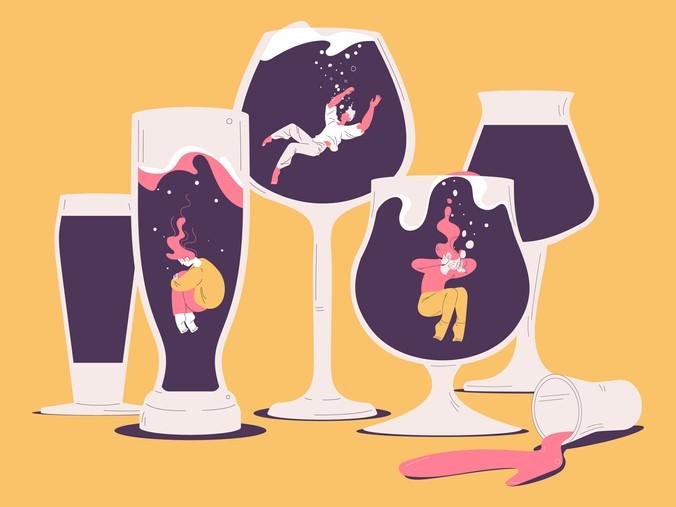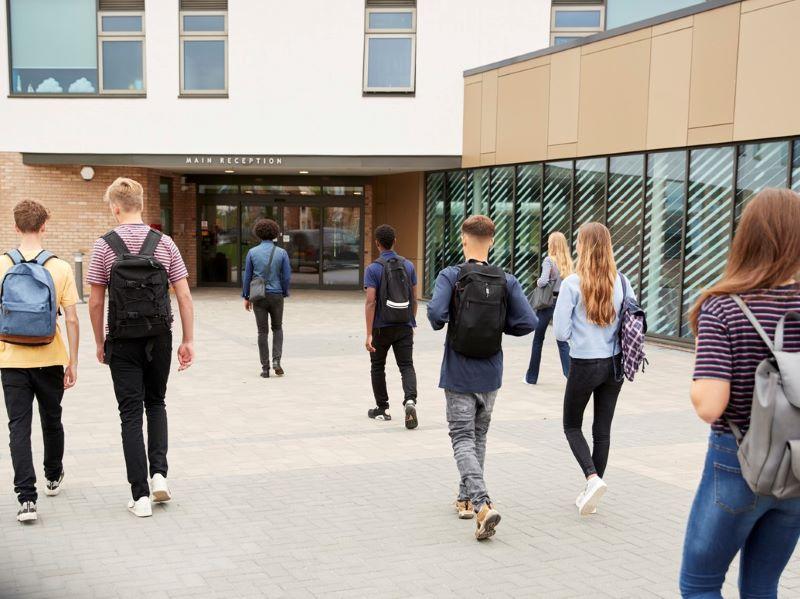It is certainly true – and very welcome – that in recent years higher education has become far more comfortable talking about the mental health needs of our student populations and what we as institutions can do to help. We rightly champion our support services, promote awareness and are both proud of and grateful to those students who help others by talking about their own mental health.
But when it comes to supporting recovery from addiction – one small but very important element of mental health and well-being – the sector seems less confident, indeed nervous, to openly discuss it, even though many of our students across all of our institutions will be recovering from a range of addictions.
Their higher education journey is a key component – and crucial to taking control – of their lives. Unfortunately, at the very beginning of university life, these new students are exposed to a whirlwind of fresher’s parties and entertainment with a regular and common theme: alcohol. Despite increasing numbers of young people not drinking for a variety of reasons, including health, religious observation or worries about a negative impact on their grades, alcohol seems to stubbornly remain a significant part of the university experience.
- How can universities ensure all new students feel welcome?
- Why higher education should take an EDI lesson from Kendrick Lamar
- Collective voices, zero tolerance
We all know that starting university is a pivotal time in a student’s life. It’s often the first time that a young person will have lived away from home, leaving behind the safety net of their friends and family. Fresher’s week is a great way for students to orientate, meet new friends and have lots of fun. But what if you’re a student in recovery from an addiction? What if you feel unable to socialise with your new housemates because you’re seemingly the only person not drinking?
On top of these social challenges, many people in recovery, including students and staff, feel unable to share their status because addiction stigma is, sadly, still rife. This makes settling into daily life on campus even more problematic and potentially very isolating.
Of course, alcohol is just one of the substances or behaviours that can lead to addiction. But the substance (alcohol or other drugs) or behaviour/process (gambling or gaming) isn’t usually, in itself, the root cause. Trauma, co-morbid mental health problems, poverty, isolation and many other factors can all play a role in the development of an addiction. It seems ironic that, as a sector, we can seem more comfortable seeing signs for students’ union drinks offers on campus than we are with promoting recovery services on our websites or at fresher’s weeks. Look at any university website and you can see content about mental health – but very rarely can you find anything about addiction and recovery.
I’m not suggesting that we encourage all of our students to stop drinking; nor am I suggesting the same for staff. What I am suggesting is that we make recovery on campus visible. That we promote opportunities for sober students to meet other sober students. That we commit to creating sober events and making them part of the wider social programme. That accommodation allocation considers students in sobriety. That support services for those impacted by addiction of all kinds are proactively communicated to staff and students. And that addiction stigma is challenged. The simple reality is that we will have students in recovery at all of our institutions – and making a few simple changes can help this vulnerable group of students feel welcomed, understood and that they belong to their university community.
I’ve worked in the sector long enough to know that this can be a big ask and that not all institutions will be as comfortable with the conversation as we are at Sunderland. But what is increasingly apparent is that there is support for universities to put all these things in place and give students in recovery an equal opportunity to do well in academia and therefore positively contribute to university life.
In fact, from what I’ve seen and heard – and given the significance of the addictive illness they’ve overcome – the strength and tenacity of students in recovery is palpable. They’re often the ones turning up to every lecture and getting the firsts. But there are also those students who might be struggling with active addiction or who are at risk of developing an addiction. We should be doing everything we can to give them the best possible chance of finding recovery. And finding peer support is paramount to finding recovery.
At Sunderland, we recently became the first university in the UK to sign up to Recovery Connections’ Recovery Friendly University Pledge – and it’s something I’d urge other institutions to consider. All you need is the intent and commitment to equal opportunity for students in recovery or those affected by addiction – the practicalities of how to do that, along with guidance and support, comes from the pledge itself.
Make recovery from all kinds of addictions part of your university’s wider offer, make it visible and accessible, and there will be a positive impact on your student well-being, student success and reputation. Academia is, after all, about challenging the status quo, learning and making the world a better place, so rather than sitting back and waiting for addiction stigma to decrease, there is a real opportunity here for the sector to show some strong leadership. Let’s ensure that all students are made to feel welcome at our respective universities and give them the best possible opportunities to make themselves – and us – incredibly proud.
Simon Lee is assistant director student journey (student support services) at the University of Sunderland, UK. To find out more about the support available to become a recovery friendly university visit https://www.recoveryconnections.org.uk/recovery-friendly-pledge/
If you found this interesting and want advice and insight from academics and university staff delivered direct to your inbox each week, sign up for the THE Campus newsletter.




comment